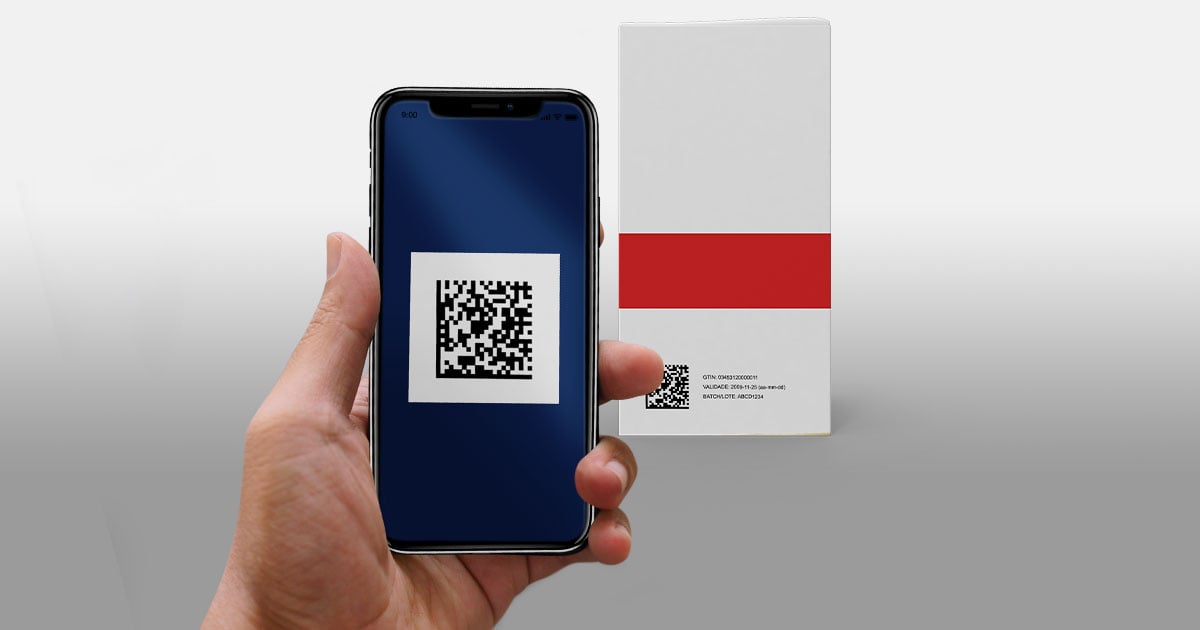With the deadline approaching, Anvisa approved regulations on the implementation of serialization and traceability mechanisms; these are fundamental guidelines that have long been anticipated with great expectation by managers within the pharmaceutical industry.
On August 23, the board of the National Health Surveillance Agency (Anvisa) approved a Regulatory Instruction (NI; known as ‘normative instruction’ in Brazil) that resolves issues related to the deadline to implement serialization systems for drug traceability. Among these issues, we have the identification of which drugs should be serialized and tracked, and also the starting date for transmitting data to the National Drugs Control System (SNCM).
And the deadline is fast approaching: April 28, 2022.
The regulatory instruction itself is very simple, containing 10 sections, and it is fundamental that all company managers involved in the medicine production and distribution chain read and understand it.
Therefore you should ask yourself the following questions:
Who does it apply to and what needs to be done?
The regulation recognizes that all agents involved in the chain of movement of medicines must follow the established requirements, even though it states that application is optional for private services and those managed by the SUS (Brazilian National Health Service). Whoever has to adapt to the standards must, according to the regulation, present a serialization plan.
To explain what this plan is, the regulation presents six items that determine the need to cover all production lines and pharmaceutical products. It also stipulates that the plan must be shared, via the SNCM platform. Also according to the regulation, all agents directly involved as well as indirectly (to which the regulation applies) must transmit information about all events related to serialized drugs.
Which drugs should be serialized and traced?

The (NI) is very comprehensive in recognizing that all regulated drugs must be serialized and have their information shared with the SNCM. However, the NI article also points out eight exceptions, or rather, categories of drugs in which serialization is optional. It is important to be aware of these:
- Medications exempt from prescription, those that are specific, phytotherapic, dynamized and radiopharmaceuticals;
- Medicinal gases;
- Free samples
- Serums, vaccines and medicines for government purposes.
Is the NI already in effect?

The answer is yes. The text became effective as of its publication date, so it is important to remember and be aware of the deadlines set by Anvisa. Be sure to check the full version of the draft, the text that was put to the vote. It is available here.
A trend or an isolated event?
The NI, along with the entire process of SNCM implementation, is not an isolated event, and it is very unlikely that it will be restricted to itself. This is because the context in which we live is one of expanding our access to information and, at the same time, increasing the amount of information we produce.
This dual movement, although often criticized by some, is now increasingly being applied which is to the benefit of consumers and manufacturers, since the greater the knowledge and control about the production and distribution chain, the greater the knowledge about the end product that is being sold, purchased and consumed. And we know how well a product with reliable origins is evaluated on the market, which reinforces the brand value of the company producing or distributing it.
In any case, the approval of the NI and the beginning of SNCM jointly mark the consolidation of new demands that characterize industry 4.0 – and, riding the wave of 5G internet, why not industry 5.0?
In an era of misinformation that is being created all the time, about any event, the implementation of a control system, based on the use of state-of-the-art technology and registration of the countless events within a production chain does not only protect the consumer and the company but also our lives and our integrity!
Get answers to your questions from our TrackTraceRX team of experts with no commitment or obligation on your behalf.
Use the chat function or contact us!


COMMENTS